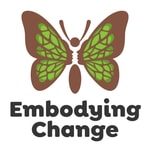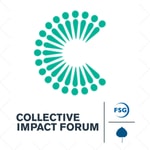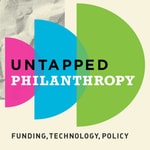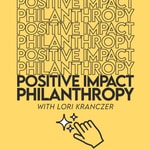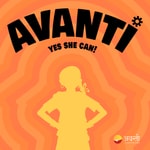On the Contrary by IDR – Détails, épisodes et analyse
Détails du podcast
Informations techniques et générales issues du flux RSS du podcast.
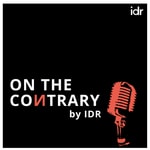
On the Contrary by IDR
India Development Review & Maed in India
Fréquence : 1 épisode/30j. Total Éps: 38

On the Contrary by IDR is an award-winning show about listening to people not like us. In every episode, the host chats with guests as they share their diverse experiences, perspectives, and expertise on an issue—water security, gender, climate change, caste, mental health, and more. The goal is to get people to explore their similarities and differences, and find a new, shared understanding. New episode out every Wednesday.
Classements récents
Dernières positions dans les classements Apple Podcasts et Spotify.
Apple Podcasts
🇫🇷 France - newsCommentary
08/03/2025#96
Spotify
Aucun classement récent disponible
Liens partagés entre épisodes et podcasts
Liens présents dans les descriptions d'épisodes et autres podcasts les utilisant également.
See all- https://www.maedinindia.in/
156 partages
- https://idronline.org/donate/
76 partages
- http://www.idronline.org/
26 partages
- https://twitter.com/maedinindia
315 partages
- https://twitter.com/idr_online
31 partages
Qualité et score du flux RSS
Évaluation technique de la qualité et de la structure du flux RSS.
See allScore global : 83%
Historique des publications
Répartition mensuelle des publications d'épisodes au fil des années.
Women in the workforce part II: What the data doesn't tell us
Saison 1 · Épisode 36
mardi 5 mars 2024 • Durée 33:01
In this episode, journalist Namita Bhandare, researcher Sharon Buteau, and author and economist Shrayana Bhattacharya, delve into the data on female labour force participation, revealing the truth about Indian women’s engagement in paid work.
Host: Saloni Meghani
Produced and edited by: Sneha Philip, Smarinita Shetty, Shreya Adhikari, and Halima Ansari
IDR is an online journal that publishes cutting-edge ideas, lessons and insights, written by, and for the people working on some of India’s toughest problems. For more information, visit www.idronline.org, or follow IDR on Facebook, Linkedin, Twitter and Instagram.
This podcast is a Maed in India production.
Women in the workforce part I: Where women work
Saison 1 · Épisode 35
mardi 27 février 2024 • Durée 23:42
In this episode, Gayathri Vasudevan (Chief Impact Officer, Sambhav Foundation and Chairperson, LabourNet Services India), and feminist and queer activist Manak Matiyani discuss how gender norms and masculinities shape women's access to the workforce.
Host: Smarinita Shetty
Produced and edited by: Rachita Vora, Smarinita Shetty, Shreya Adhikari, and Halima Ansari
IDR is an online journal that publishes cutting-edge ideas, lessons and insights, written by, and for the people working on some of India’s toughest problems. For more information, visit www.idronline.org, or follow IDR on Facebook, Linkedin, Twitter and Instagram.
This podcast is a Maed in India production.
How is the climate affecting women?
Saison 1 · Épisode 26
mardi 1 novembre 2022 • Durée 26:11
In this episode, Archana Soreng, a young climate activist belonging to the Kharia tribe in Odisha, speaks with Bijal Brahmbhatt, director at the nonprofit Mahila Housing Trust. They discuss how the climate crisis is exacerbating pre-existing inequalities across rural and urban India, especially for women and indigenous communities. Exploring the future of climate action, they also talk about why it’s crucial for policymakers to make space for voices and solutions emerging from the grassroots.
Host: Smarinita Shetty;
Produced and edited by: Rachita Vora, Shreya Adhikari, and Smarinita Shetty.
IDR is an online journal that publishes cutting-edge ideas, lessons and insights, written by, and for the people working on some of India’s toughest problems. For more information, visit www.idronline.org , or follow IDR on Facebook, Linkedin, Twitter and Instagram.
This podcast is a Maed in India production.
How is the climate crisis affecting our jobs?
Saison 1 · Épisode 25
mardi 18 octobre 2022 • Durée 37:53
As the climate emergency worsens, can we continue to work the way we do? And if the nature of jobs needs to change, how can we ensure that the most vulnerable communities don’t bear the brunt? Harish Hande, the co-founder of SELCO, argues that moving away from centralised businesses and localising jobs is the way to go. However, Sabina Dewan, the founder and executive director of the JustJobs Network, calls for stronger policy and regulatory frameworks to ensure businesses become sustainable.
Host: Smarinita Shetty;
Produced and edited by: Rachita Vora, Shreya Adhikari, and Smarinita Shetty.
IDR is an online journal that publishes cutting-edge ideas, lessons and insights, written by, and for the people working on some of India’s toughest problems. For more information, visit www.idronline.org , or follow IDR on Facebook, Linkedin, Twitter and Instagram.
This podcast is a Maed in India production.
Is tech killing the planet?
Saison 1 · Épisode 24
mardi 11 octobre 2022 • Durée 26:40
Technology is emerging as a crucial lever for climate action. However, there is also an urgent need to discuss its consequences. Is adopting tech truly the only low carbon answer or just a more profitable one? And who gets to control it? The big tech companies or the communities facing the devastating consequences of climate change on the ground? Jim Fruchterman, Founder and CEO of Tech Matters, and Trisha Ray, Deputy Director, Centre for Security, Strategy and Technology at Observer Research Foundation, explore the growing and sometimes unforeseeable impacts of tech on climate change.
Host: Smarinita Shetty;
Produced and edited by: Rachita Vora, Shreya Adhikari, and Smarinita Shetty.
IDR is an online journal that publishes cutting-edge ideas, lessons and insights, written by, and for the people working on some of India’s toughest problems. For more information, visit www.idronline.org, or follow IDR on Facebook, Linkedin, Twitter and Instagram.
This podcast is a Maed in India production.
Food vs Water
Saison 1 · Épisode 23
mardi 4 octobre 2022 • Durée 25:15
Much needs to change in India when it comes to agriculture, especially given the climate crisis and its impact on our food systems. On this episode, Crispino Lobo, co-founder of the Watershed Organisation Trust, and Mark Kahn, co-founder of the agritech-focused venture capital firm, Omnivore, discuss what farmers need most today to help them develop climate resilience.
Host: Rachita Vora
Produced and edited by: Rachita Vora, Shreya Adhikari, and Smarinita Shetty
IDR is an online journal that publishes cutting-edge ideas, lessons and insights, written by, and for the people working on some of India’s toughest problems. For more information, visit www.idronline.org, or follow IDR on Facebook, Linkedin, Twitter and Instagram.
This podcast is a Maed in India production.
CSR, philanthropy, and climate funding
Saison 1 · Épisode 22
mardi 27 septembre 2022 • Durée 26:04
With the increasing focus on climate action in India, all eyes are on the funding landscape to back it up. But where do corporate, individual, and private philanthropy stand when it comes to funding climate solutions? What are their constraints, and given the quantum of funds required, is a collaboration between them a potential solution? Gayatri Divecha, Head of Corporate Social Responsibility at Godrej Industries, and Shloka Nath, Executive Director, at India Climate Collaborative, weigh in.
Host: Rachita Vora
Produced and edited by: Rachita Vora, Shreya Adhikari, and Smarinita Shetty
IDR is an online journal that publishes cutting-edge ideas, lessons and insights, written by, and for the people working on some of India’s toughest problems. For more information, visit www.idronline.org, or follow IDR on Facebook, Linkedin, Twitter and Instagram.
This podcast is a Maed in India production.
How to talk about climate
Saison 1 · Épisode 21
mardi 20 septembre 2022 • Durée 30:48
The climate change story has largely been all doom-and-gloom. As we wake up to the impacts of worsening climate change, it still feels a bit abstract. How does the crisis relate to people’s day to day lives? Is there a role for individuals to play? This week, Navroz Dubash, policy advisor and professor at the Centre for Policy Research, and Sahana Ghosh, science journalist at Mongabay India, look at the complicated manner in which we talk about climate today, and explore whether there is a better, more empowering story to tell.
Host: Rachita Vora
Produced and edited by: Rachita Vora, Shreya Adhikari, and Smarinita Shetty.
IDR is an online journal that publishes cutting-edge ideas, lessons and insights, written by, and for the people working on some of India’s toughest problems. For more information, visit www.idronline.org, or follow IDR on Facebook, Linkedin, Twitter and Instagram.
This podcast is a Maed in India production.
Trailer
Saison 1 · Épisode 20
mardi 20 septembre 2022 • Durée 02:44
India Development Review’s podcast, On the Contrary by IDR returns with Season 4, and this time it's focussing on the most serious crisis of our times—climate change. In every episode, two climate experts discuss the interplay between the climate emergency and gender, livelihoods, technology, and more. Tune in every Wednesday, on your favourite podcasting app. For more information, visit: www.idronline.org
Schools in India: Public vs private
Saison 1 · Épisode 19
mardi 5 avril 2022 • Durée 40:16
Can investing in government schools result in an improved education system? Or does the answer lie in developing affordable private schools? In this episode, Aditya Natraj, CEO of Piramal Foundation, and Parth Shah, founder-president of the Centre for Civil Society, discuss the pros and cons of government and private schools, and why both systems need to work together to ensure quality education for children.
Highlights:-
The pandemic has thrown up many challenges for both government and private schools. The entire education system needs to be reassessed to ensure children don’t suffer any further learning losses.
-
A monopoly of either system takes away parents’ right to choose the kind of education they want for their children. It is important for affordable private schools to co-exist with government schools.
-
There is a huge gap between the perception and reality of both schooling systems. The perception of either system’s performance vis-a-vis national surveys and popular media does not usually paint the whole picture.
For more information about IDR, go to www.idronline.com. Also, follow IDR on Facebook, Linkedin, Twitter and Instagram.
Read more:
1. The purpose of education: Learn, do, become.
2. Are private schools really better than government schools?
3. “Let us not give up on government schools”
4. Can we ensure all children return to schools?
5. How reliable is India’s learning outcomes data?
6. State of the sector report on private schools in India
7. Without accountability, there’s no pressure to improve
8. What standardised testing doesn’t tell us about learning
9. What the National Education Policy means for India
10. Why Indian children can’t read
11. Education in India needs an overhaul
12. Teacher shortage: A problem of distribution or scarcity?
13. The billion dollar opportunity in affordable private schools
